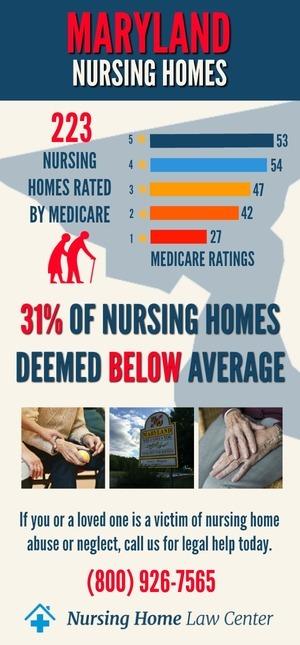The Nursing Home Law Center is committed to providing the legal resources necessary to hold negligent facilities accountable.
Maryland Nursing Home Abuse Lawyer

Licensed in Maryland
Nursing home abuse is a serious and deeply troubling issue that affects many elderly residents in Maryland nursing homes and across the United States. Such mistreatment not only results in physical harm but can lead to long-term emotional trauma and significant medical bills.
Legal representation provides a voice for elderly residents who cannot advocate for themselves. Families can pursue compensation for medical bills, emotional distress, and other damages related to nursing home neglect and abuse.
A skilled nursing home attorney can make a critical difference in these cases, offering support and strategic advice to bring responsible parties to justice and protect other residents from similar harm.
Why Hire Nursing Home Law Center
At Nursing Home Law Center, we are dedicated to obtaining justice and fair compensation for victims of nursing home abuse. Our skilled legal team has an impressive history of managing nursing home abuse cases with care and securing meaningful settlements and verdicts.
We carry out detailed investigations to ensure every aspect of abuse is examined, including medical expenses, emotional distress, and other damages. With our strong knowledge of nursing home abuse claims, we effectively manage the legal process and fight diligently to safeguard your rights.
Types of Cases Handled by Our Maryland Nursing Home Abuse Lawyers
Nursing home abuse refers to the mistreatment of elderly residents in assisted living facilities, resulting in physical, emotional, or financial harm. This abuse can take many forms and often requires legal action to protect victims and hold responsible parties accountable. Below are the common types of cases our nursing home abuse attorneys handle:
Physical Abuse
Physical abuse involves any deliberate act that causes bodily harm to a nursing home resident. This assault can include hitting, slapping, pushing, or the improper use of physical restraints. Signs may include unexplained bruises, fractures, or other injuries.
Mental and Emotional Abuse
Emotional or mental abuse encompasses behavior that inflicts psychological distress on an elderly resident. This abuse can involve yelling, threats, humiliation, or isolating the resident from others. Symptoms may manifest as anxiety, depression, or a sudden behavior change.
Sexual Abuse
Sexual abuse refers to any non-consensual sexual contact or behavior. Elderly residents, particularly those with cognitive impairments, are especially vulnerable. Signs may include unexplained injuries, changes in demeanor, or sexually transmitted infections. Sexual assault compromises a resident’s safety and well-being and can lead to long-term trauma.
Medical Malpractice
Medical malpractice cases often involve inadequate medical care, leading to preventable health issues such as bedsores, infections, or complications from medication errors. This type of abuse can occur when nursing home staff members or medical professionals fail to provide proper treatment, resulting in serious injuries.
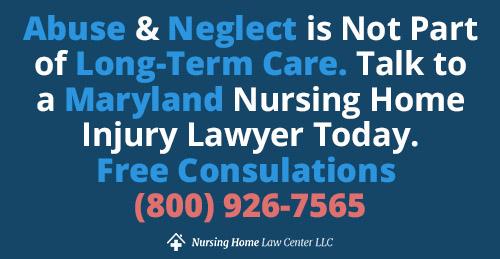
Negligence
Negligence occurs when a nursing home fails to meet the basic standards of care for its residents. This neglect can include poor hygiene, lack of proper nutrition, dehydration, or allowing residents to wander unsupervised (elopement).
Financial Abuse
Financial abuse involves the unauthorized or illegal use of a nursing home resident’s funds or assets. This exploitation can include forging signatures, coercing residents into changing financial documents or stealing personal property.
Wrongful Death
When neglect or abuse leads to the death of a resident, it may be classified as wrongful death. Families may pursue legal action to hold the nursing home accountable for the preventable loss. These cases can involve severe neglect, medical malpractice, or intentional harm that leads to fatal outcomes.
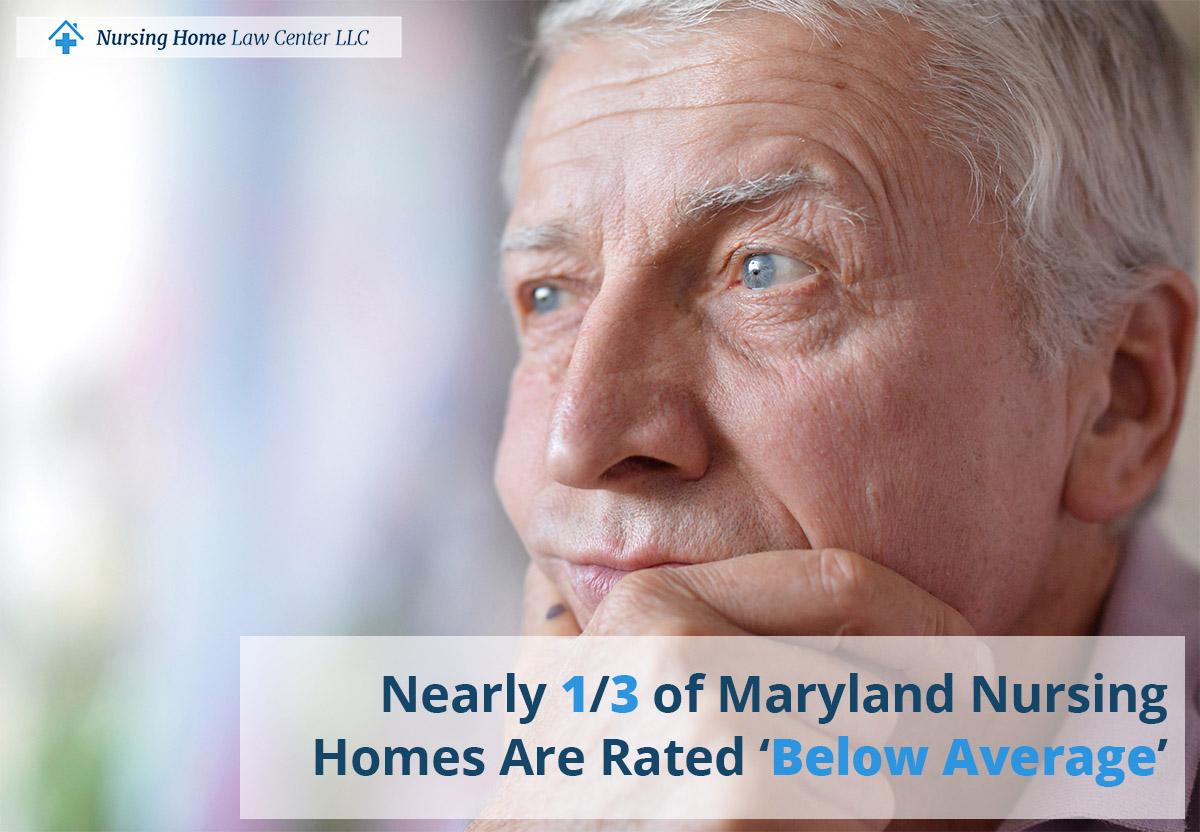
Understanding Your Legal Rights
Nursing home residents are protected under federal and state laws to ensure their safety, dignity, and quality of life.
The Nursing Home Reform Act of 1987 is a pivotal federal law establishing minimum care standards in nursing homes and mandates that facilities promote and protect residents’ rights. Under this act, residents have the right to be free from abuse and neglect, receive proper medical care, and live in an environment that enhances their physical and mental well-being.
In Maryland, state-specific regulations further reinforce these protections. State laws require that nursing homes adhere to high standards of care and comply with strict licensing and oversight protocols. Violations of these standards can lead to legal action by victims and their families.
The nursing home abuse victim can seek out legal action, or if they are unable to advocate for themselves, a legal guardian or family member may act on their behalf. Consulting an attorney can help families understand their legal options and take appropriate action to hold liable facilities accountable for their failures.
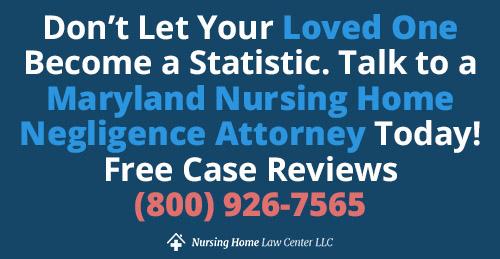
Liability in Nursing Home Neglect and Abuse Cases
In cases of nursing home neglect and abuse, multiple parties can be held accountable depending on the circumstances. Understanding the various liable parties helps victims and their families build a strong nursing home abuse lawsuit to seek compensation for medical treatment, emotional pain, and other damages.
- Nursing Home Facilities: The nursing home or assisted living facility can be liable if abuse or neglect results from inadequate policies, poor training, or staffing shortages. When a facility fails to provide a safe environment, it can be held responsible for resulting physical harm and emotional trauma.
- Staff Members: Nursing home staff members, including aides and nurses, may be individually liable for acts of physical abuse, neglect, or emotional abuse. This liability includes failing to provide necessary care, leading to nursing home injuries such as bedsores or malnutrition.
- Medical Professionals: Doctors and other health care providers may face liability for medical malpractice, including medication errors or failing to address a resident’s medical needs. This negligence can lead to serious injuries or deterioration in the resident’s condition.
- Management and Administrators: Facility administrators can be held accountable if their oversight lapses contribute to abuse. This negligence can include failing to screen employees properly or ignoring reports of misconduct.
- Third-Party Contractors: Contracted service providers, such as physical therapists or maintenance workers, can also be liable if their negligence contributes to a resident’s harm.
How Our Maryland Nursing Home Abuse Attorneys Can Help
Our team of Maryland nursing home abuse lawyers is experienced in handling a wide range of nursing home negligence cases. We are dedicated to helping victims and their families achieve justice and financial compensation for the harm they’ve suffered.
With our in-depth understanding of personal injury cases and years of successful outcomes, we offer comprehensive legal services tailored to each case. Below are some of the key services we provide:
Free Case Evaluation
We begin by offering a free consultation to assess your situation. This initial evaluation allows our skilled attorneys to review your case details, discuss potential legal options, and answer any questions you may have about the process.
Case Investigation
Our legal team conducts a thorough investigation to gather crucial evidence, such as medical records, witness statements, and facility inspection reports. This step helps build a strong foundation for your personal injury case, ensuring that every aspect of abuse and neglect is uncovered.
Filing the Claim
We handle all aspects of filing the claim on your behalf. This process includes drafting and submitting the necessary legal documents in accordance with Maryland law and coordinating with relevant authorities and parties to initiate the legal process efficiently.
Settlement Negotiation
Our attorneys are skilled negotiators who advocate for fair settlements covering medical treatment, pain and suffering, and other damages. We work directly with the insurance company and opposing counsel to pursue an outcome that reflects the full extent of the harm suffered.
Trial Representation
Our attorneys are prepared to take the case to trial if a fair settlement cannot be reached. We provide strong representation in court, using our experience to present compelling arguments and evidence to secure a favorable verdict.
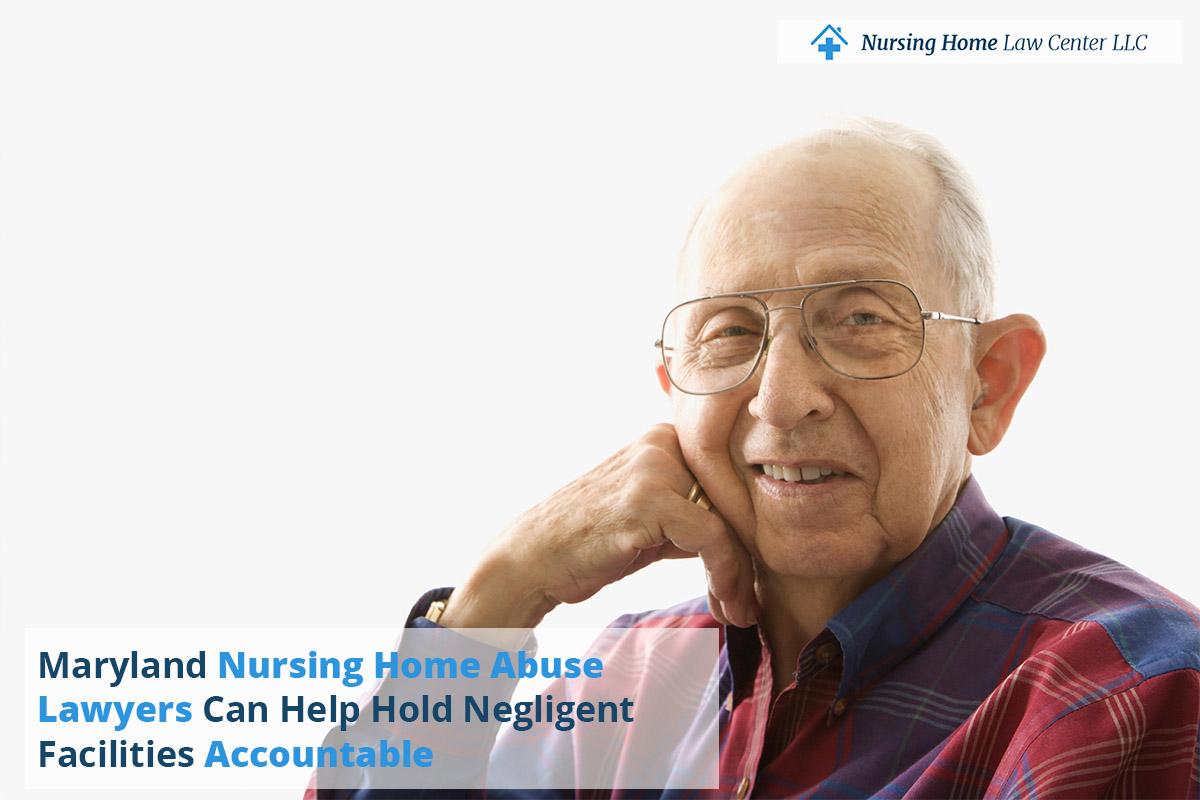
Common Signs of Elder Abuse Among Nursing Home Residents
Maryland has 222 Medicare-approved nursing homes, but many fall below acceptable standards in key areas. Ninety-nine facilities (45%) have an overall score rated below or much below average, indicating widespread concerns with general performance.
The situation is even more concerning in health inspections, where 104 nursing homes (47%) received below or much below-average scores. Staffing levels are also an issue, with 83 facilities (37%) rated poorly, suggesting potential challenges in providing adequate care.
Finally, quality measures, which assess how well residents’ needs are met, show that 54 of Maryland’s nursing homes (24%) scored below average. [1]
Identifying elder neglect in a nursing home facility can be challenging, as many victims may be unable or afraid to speak up. However, there are common warning signs that families should be aware of to help protect their loved ones:
- Unexplained bruises, cuts, or fractures
- Bed sores and poor hygiene
- Weight loss and dehydration
- Withdrawal from activities
- Signs of anxiety or fear around certain staff members
- Bruising around sensitive areas or STIs
- Torn or stained clothing
- Missing personal belongings
- Unauthorized withdrawals or altered financial documents
- Unexplained changes to wills or powers
- Untreated medical problems or medication errors
- Frequent infections or worsening health conditions
The worst-rated nursing homes in Maryland include:
| Adelphi Nursing and Rehabilitation Center | Anchorage Healthcare Center |
| Autumn Lake Healthcare at Arcola | Autumn Lake Healthcare at Ballenger Creek |
| Autumn Lake Healthcare at Birch Manor | Autumn Lake Healthcare at Braddock Heights |
| Autumn Lake Healthcare at Glen Burnie | Autumn Lake Healthcare at Homewood |
| Autumn Lake Healthcare at Loch Raven | Autumn Lake Healthcare at Pikesville |
| Autumn Lake Healthcare at Spa Creek | Autumn Lake Healthcare at Summit Park |
| Berlin Nursing and Rehabilitation Center | Carroll Park Healthcare |
| Charlestown Community Inc | Charlotte Hall Veterans Home |
| Chestertown Nursing and Rehab | Clinton Healthcare Center |
| Complete Care at Heritage LLC | Courtland, LLC |
| Creekside Center for Rehabilitation and Nursing | Denton Nursing and Rehab |
| Elkton Nursing and Rehabilitation Center | Ellicott City Healthcare Center |
| Fox Chase Healthcare | Future Care Cherrywood |
| Future Care Cold Spring | Hagerstown Healthcare Center |
| Holly Hill Healthcare Center | Julia Manor Nursing and Rehabilitation Center |
| Largo Nursing and Rehabiliation Center | Manokin Nursing and Rehab |
| Northwest Healthcare Center | Oakland Nursing & Rehabilitation Center |
| Orchard Hill Rehabilitation and Healthcare Center | Patapsco Healthcare |
| Peace Healthcare at Dennett Road | Peace Healthcare at Lions Center |
| Peace Healthcare at Ridgeway Manor | Pines Nursing and Rehab |
| Pleasant View Healthcare Center | Restore Health Rehabilitation Center |
| Rossville Rehabilitation and Healthcare Center | White Oak Rehabilitation and Nursing Center |
| Williamsport Nursing Home |
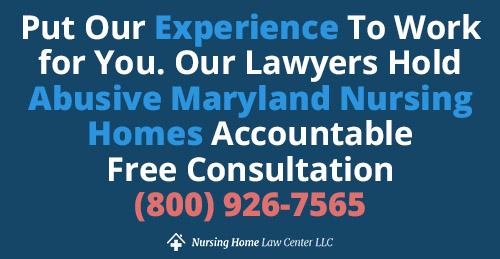
What to Do If You Suspect Nursing Home Abuse
If you suspect that a nursing home resident is being abused, it is important to act quickly to protect their safety and well-being. Here are the steps to take:
Call 911 if There is Immediate Danger
If you believe the resident is at immediate risk of harm, call 911 for urgent assistance. Law enforcement can step in to protect the individual and investigate the situation.
Report Nursing Home Abuse to the Administrator or Management
Notify the facility’s administration or management about your concerns. This report can help initiate an internal investigation and ensure immediate steps are taken to safeguard the resident.
File a Complaint with your Local Ombudsman’s Office
The Ombudsman’s office advocates for residents of nursing homes and assisted living facilities. It can investigate complaints, mediate conflicts, and resolve issues affecting residents’ rights and safety.
Contact a Nursing Home Abuse Lawyer
Speak with an experienced nursing home abuse lawyer to understand your legal rights and options. A lawyer can help you file a nursing home abuse claim and take action to hold the facility and responsible parties accountable for their actions.
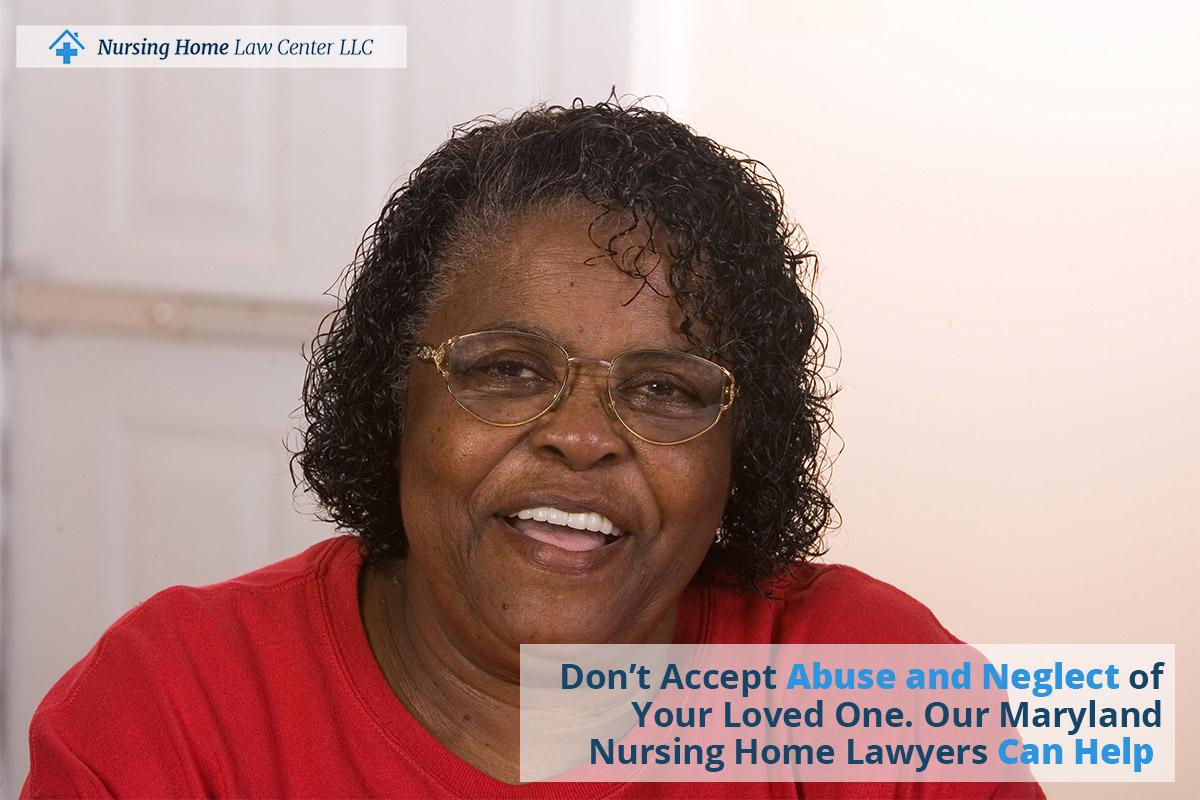
Damages You Can Recover Through a Nursing Home Abuse Claim
Victims of elder abuse and their families may be entitled to various types of damages to compensate for the harm suffered.
Economic Damages
These cover the quantifiable costs directly associated with the abuse:
- Medical expenses: Costs related to treatment, hospitalization, rehabilitation, and future medical care.
- Lost assets or funds: Reimbursement for financial abuse where a resident’s money or property was stolen or misused.
Non-Economic Damages
These damages address the more subjective, non-monetary impact of abuse:
- Pain and suffering: Compensation for the physical pain and emotional trauma endured by the resident.
- Mental anguish: Damages for psychological effects, such as depression or anxiety, that resulted from the abuse.
- Loss of quality of life: Compensation when abuse leads to diminished enjoyment of life or independence.
Punitive Damages
Punitive damages may be awarded in cases where the abuse was especially malicious or reckless. These damages are meant to punish the responsible parties and deter similar behavior in the future.
Wrongful Death Damages
If nursing home abuse results in the death of a resident, the family can pursue a wrongful death claim. Damages in these cases may include:
- Funeral and burial costs: Coverage for expenses related to end-of-life services.
- Loss of companionship: Compensation for the emotional loss experienced by family members.
- Loss of financial support: Damages that address the income or financial benefits the deceased may have provided to dependents.
Pursuing these damages with the assistance of a knowledgeable nursing home lawyer can help victims and their families recover from the abuse and hold the facility accountable for their negligence or misconduct.
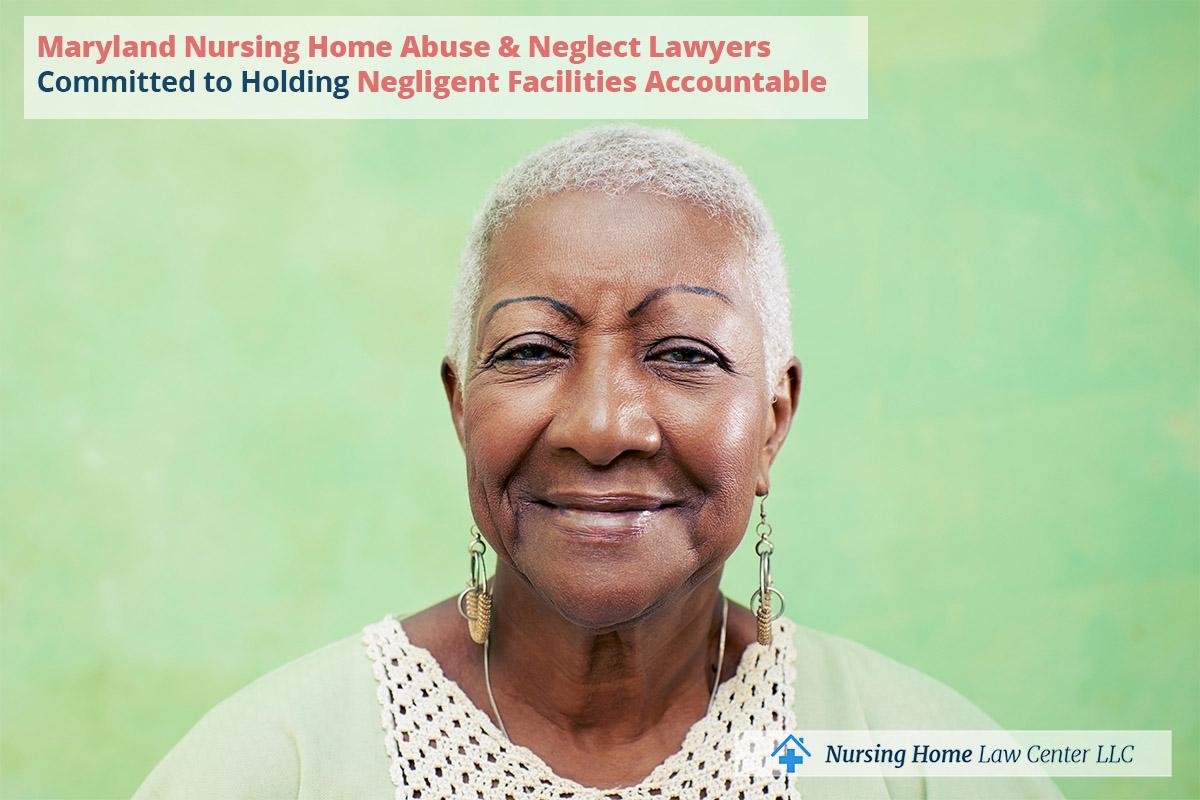
The Cost of Hiring a Maryland Nursing Home Abuse Lawyer
At our law firm, we understand that financial concerns can be a barrier for families seeking justice for their elderly loved ones. That’s why we operate on a contingency fee basis for nursing home neglect cases.
This arrangement means you do not pay any upfront fees or out-of-pocket costs. Our legal fees are only collected if we successfully recover compensation on your behalf, either through a settlement or a court verdict.
You Have Limited Time to Take Legal Action in Maryland
In Maryland, the statute of limitations for most nursing home abuse cases is generally three years from the date of the incident or the discovery of the abuse. However, specific timelines can vary based on the circumstances of the case, such as those involving medical malpractice.
Failing to file a claim within this period can result in losing the right to pursue compensation. Consult a Maryland nursing home abuse lawyer as soon as possible to ensure your case is handled properly and within the required time frame.
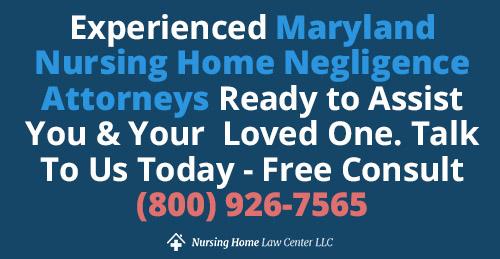
Contact a Maryland Nursing Home Abuse Attorney Today!
Our law firm has extensive experience handling nursing home abuse cases and has recovered millions in compensatory damages for victims and their families. With compassionate and committed legal support, we help clients navigate their options and hold negligent nursing homes accountable.
If you suspect that a loved one has been harmed in a Maryland nursing home, don’t wait to take action. Contact our team for a free consultation to discuss your case and get started on protecting your loved one’s rights.
Call us at (800) 926-7565 or fill out our contact form.
References: [1] Medicare


